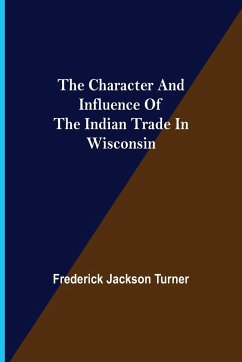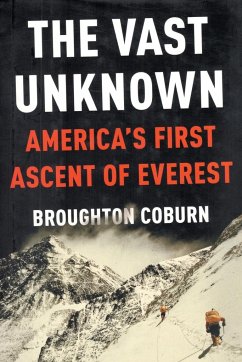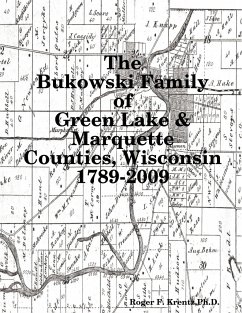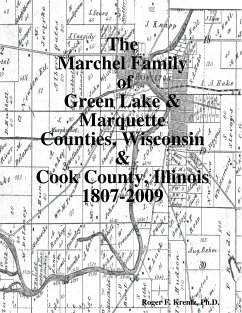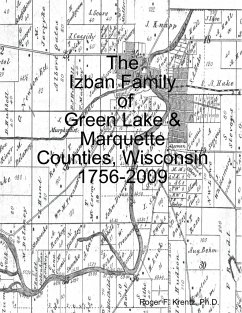Nicht lieferbar

The Character and Influence of the Indian Trade in Wisconsin (Esprios Classics)
A Study of the Trading Post as an Institution
Versandkostenfrei!
Nicht lieferbar
Weitere Ausgaben:
Frederick Jackson Turner (November 14, 1861 - March 14, 1932) was an American historian during the early 20th century, based at the University of Wisconsin until 1910, and then at Harvard. He was known primarily for his "Frontier Thesis". He trained many PhDs who became well-known historians. He promoted interdisciplinary and quantitative methods, often with an emphasis on the Midwest. His best known publication is his essay "The Significance of the Frontier in American History", the ideas of which formed the Frontier Thesis. He argued that the moving western frontier exerted a strong influenc...
Frederick Jackson Turner (November 14, 1861 - March 14, 1932) was an American historian during the early 20th century, based at the University of Wisconsin until 1910, and then at Harvard. He was known primarily for his "Frontier Thesis". He trained many PhDs who became well-known historians. He promoted interdisciplinary and quantitative methods, often with an emphasis on the Midwest. His best known publication is his essay "The Significance of the Frontier in American History", the ideas of which formed the Frontier Thesis. He argued that the moving western frontier exerted a strong influence on American democracy and the American character from the colonial era until 1890. He is also known for his theories of geographical sectionalism.





